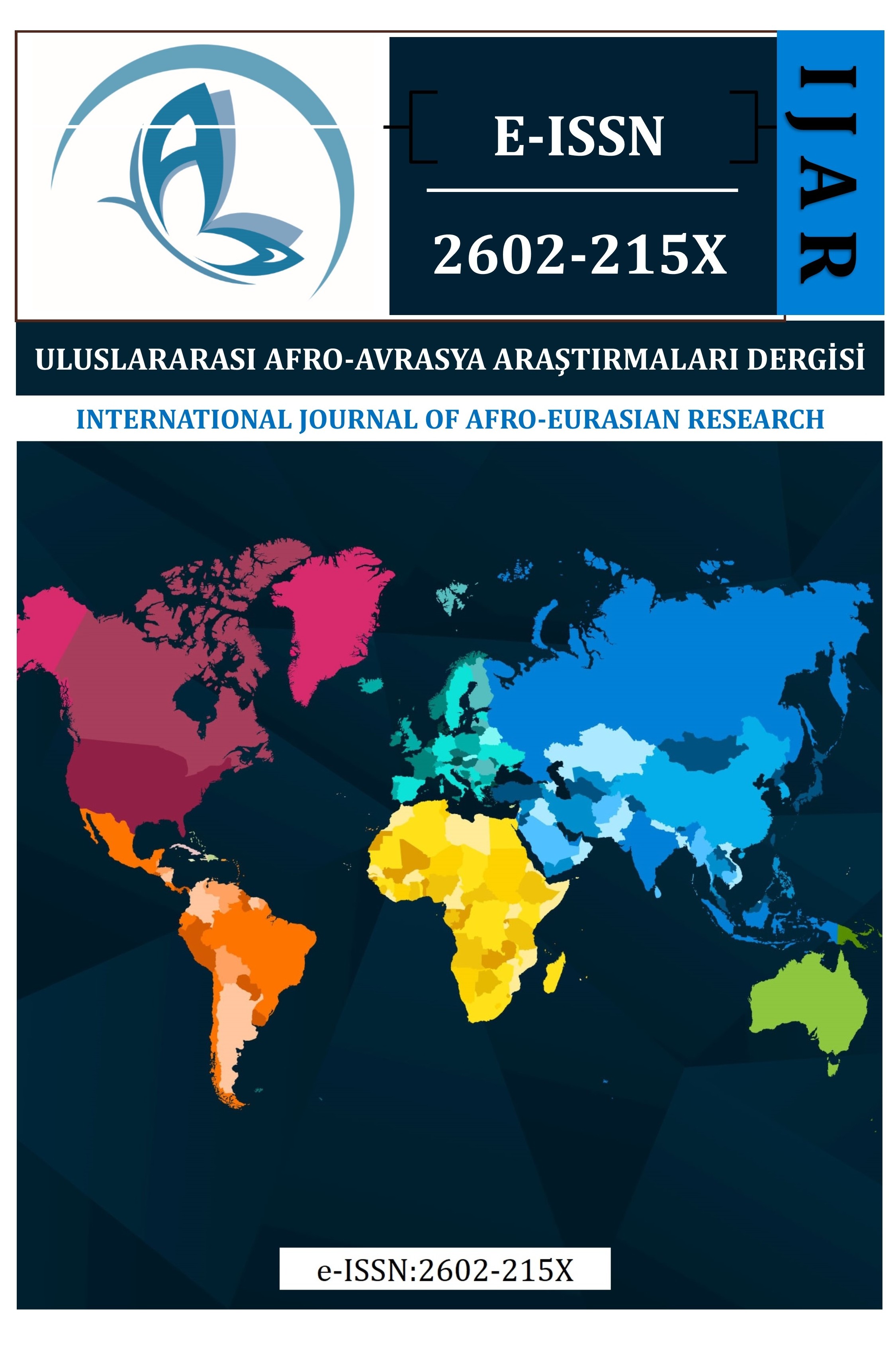How Recent Developments in Climate Change Could Result in Some Changes in International Relations?
19. yüzyılda sanayi devrimin başlamasıyla birlikte iklim değişikliği de başlamış oldu. Doğal kaynakların yıllarca endüstride kullanılması iklimimizi önemli ölçüde değiştirdi. Son iklim değişiklikleri, ulusal güvenlik sorunlarına ve uluslararası çatışmaların artmasına neden oldu. Yıllar önce, iklimbilimciler ve araştırmacılar Kuzey Kutbu’ndaki ve Güney Kutbu’ndaki buzulların erimesi konusunda uyarılar yapmışlardı. Buzulların erimesi gibi iklimsel değişiklikler sonucunda yeni sınırlar ortaya çıkacak ve Kuzey Kutbu'ndaki keşfedilmemiş zengin doğal kaynaklara erişim sağlanacaktır. Genel olarak Arktik, 90 milyar varil petrol, 17 trilyon metreküp gaz, 44 milyar varil sıvılaştırılmış gaz rezervi ile dünyanın malzeme rezervlerinin 16%, 30% ve 26%'sını kendisinde bulunduruyor. Bu rakamlar, ülkeler arasında kutup bölgelerindeki kontrollerini genişletme mücadelesine ve stratejik ittifakların doğmasına yol açmaktadır. Hatta Çin, bölge zenginliğine yatırım yaparak Moskova’yla bir ortaklığa başlamıştır. Buna karşı Amerika Birleşik Devletleri, Kanada, Norveç, Danimarka ve İzlanda'yla bir araya gelmiştir. Özellikle Kuzey Kutbu'ndaki eriyen buzullar, Asya'dan Avrupa'ya yeni ve en kısa ticaret yolları açacaktır. Bu gelişmeler, ulaşım ve keşif konusunda yeni teknolojilerin gelişmesine öncülük etmekte, böylece büyük güçlerin bir kısmının yoğunlukla Kuzey Kutbu’na taşınmasına ve dünyanın önemli bir stratejik değişime tanıklık etmesine yol açmaktadır.
Anahtar Kelimeler:
Buz Erimesi, , Kuzey Kutbu ve Antarktika, Yeni Rotalar, İthalat, Ülke İlgi Alanları
How Recent Developments in Climate Change Could Result in Some Changes in International Relations?
Climate changes began in the 19th century with the advent of the industrial revolution. The usage of natural resources for years in the industry has significantly changed our climate. The governments expect the recent changes in the environment to lead to national security problems and increase the number of international conflicts. For many years, climatologists and researchers at the North and South Poles have already warned the public about the sharp melting of polar ice these changes will open new unexplored borders and access to precious natural resources in the Arctic. The Arctic contains 90 billion barrels of oil, 17 trillion cubic feet of gas, 44 billion barrels of liquefied gas, or 16%, 30% and 26% of the world's reserves of these materials. Respectively. These numbers ignite the struggle between countries to expand their control of these arid areas of the ice. Therefore, Russia invited China for partnership to form a strategic alliance to invest in the region’s wealth. This alliance will strengthen Russia against any western counter-alliance especially the alliance of the United States, Canada, Norway, Denmark, and Iceland. The melting ice in the Arctic opens up the shortest trade routes from Asia to Europe, which develops transportations and technological methods in the North Pole. The world will witness a significant strategic shift, as these great powers will concentrate their efforts in the region.
Keywords:
Ice Melting, Arctic and Antarctic, New Routes, Import, Country Interests,
___
- BALZAC Thierry, "The Three Faces of Securitization: Political Agency, Audience and Context," European Journal of International Relations, June 2005.
- ZWITTER Andrej, Jaap de Wilde, “Prismatic Security: Expanding the Copenhagen School to the Local Level,” All academic research, рp. 1-26.
- ROE Paul, "Is securitization a 'negative' concept? Revisiting the normative debate over normal versus extraordinary politics," Security Dialogue, 8 June 2012, p. 263.
- BUZA Barry, Ole Weaver, Jaap de Wilde “Security: A New Framework for Analysis,” Lynne Rienner Publisher, 1998, pp.
- WILLIAMS C. Michael, "Words, Images, Enemies, Securitization and International Politics,” Blackwell Publishing, International Studies Quarterly, 2003, p. 512.
- BOOTH Ken, “Security after emancipation? Critical Theory, violence, and resistance,” Cambridge University Press, 3, July 2011, pp. 1113-1135.
- LAURENCE Peter, “Danes see Greenland security risk amid Arctic tensions,” BBC News, 29 November 2019.
- MICHELLA R. Geoffrey, “Climate Change and Manufacturing,” RESIM, Portugal, December 2016.
- https://tr.pinterest.com/pin/575475658607097684/.
- https://www.thearcticinstitute.org/projects/globalization/.
- https://www.rha.is/static/files/NRF/Publications/report_nrf_science_sessions_report.pdf.
- https://nsidc.org/cryosphere/seaice/characteristics/difference.html.
- https://journals.sagepub.com/doi/10.1177/1354066105052960.
- https://www.e-ir.info/2018/01/07/green-theory-in-international-relations/.
- http://environment-ecology.com/what-is-sustainability/247-sustainability.html
- https://www.e-ir.info/2018/01/07/green-theory-in-international-relations.
- https://www.tandfonline.com/doi/abs/10.1080/789610127
- https://carnegiemuseums.org/magazine-archive/1998/marapr/feat4.htm
- https://www.theguardian.com/environment/climate-consensus-97-per-cent/2018/may/09/global warming-is-melting-antarctic-ice-from-below.
- http://www.gogreen.org/blog/sea-ice-melting-rapidly-at-both-north-and-south-poles.
- https://www.dw.com/en/why-is-the-arctic-melting-faster-than-the-antarctic/a-38678700.
- https://nsidc.org/cryosphere/seaice/characteristics/difference.html.
- https://www.arctic-council.org/en/about-us.
- https://www.belfercenter.org/ArcticStrategicPlan.
- https://icds.ee/us-policy-towards-the-arctic-adapting-to-a-changing-environment/
- http://theconversation.com/northwest-passage-crossed-but-its-not-a-boon-for-business-18853.
- https://www.the-american-interest.com/2019/09/19/the-arctic-is-american/
- https://www.bbc.com/news/world-europe-50598898.
- https://www.theguardian.com/us-news/2019/aug/26/trump-crazy-like-a-fox-greenland-purchase-senator-tom-cotton.
- https://erj.ersjournals.com/content/50/4/1701145.
- http://government.ru/docs/11967/document.
- https://icds.ee/us-policy-towards-the-arctic-adapting-to-a-changing-environment/.
- https://www.ft.com/content/2fa82760-5c4a-11e9-939a-341f5ada9d40
- https://www.dailysabah.com/science/2019/08/08/turkish-scientists-set-course-for-north-pole.
- https://www.sciencedirect.com/topics/earth-and-planetary-sciences/antarctic-region\.
- https://www.bas.ac.uk/about/antarctica/the-antarctic-treaty/the-antarctic-treaty-explained/.
- https://www.jstor.org/stable/755968?seq=1./document.
- https://unfccc.int/process-and-meetings/the-paris-agreement/the-paris-agreement
- https://www.unwomen.org/en/digital-library/publications/2018/2/gender-equality-in-the-2030-agenda-for-sustainable-development-2018.
- http://www.fao.org/news/story/en/item/328500/icode/.
- https://nsidc.org/cryosphere/seaice/characteristics/difference.html.
- Başlangıç: 2016
- Yayıncı: Hakan ARIDEMİR
Sayıdaki Diğer Makaleler
İşletmelerin Yeşil Yönetim Algıları ve Sürdürülebilirlik Bilinci
Bilgi Toplumu Olma Yolundaki Türkiye’de Genç İşgücü İstihdamı
Soykırım Ansiklopedisinde Yer Alan Sözde “Ermeni Soykırımı” Bölümünün Tahlili
How Recent Developments in Climate Change Could Result in Some Changes in International Relations?
Mehmet Sadık AKYAR, Nahla SARHAN, Nail BAİROMOVA
L’éloge de la haine » Le nouveau négationnisme du génocide contre les Tutsis au Rwanda
Türk Dış Ticareti’nin Yapısal Dönüşümünün Analizi (2002-2016)
SSCB’den Ayrılan Türk Cumhuriyetlerinin Yerel Yönetim Perspektifleri
Hüseyin ÖNDER, Abdulhanan ZARIFY
Sürdürülebilir Kalkınma İle Sağlık Ekonomisi Arasındaki İlişkinin Analizi: Van İli Örneği
